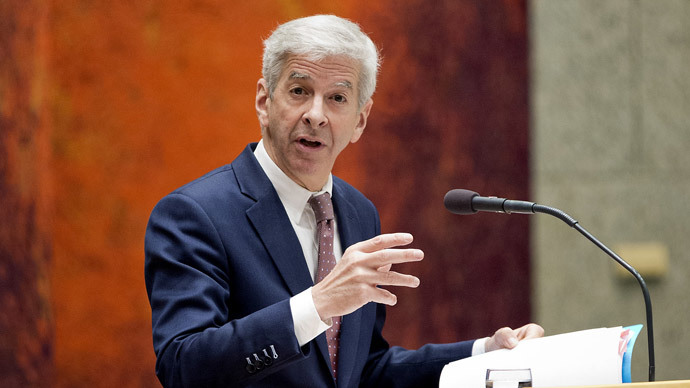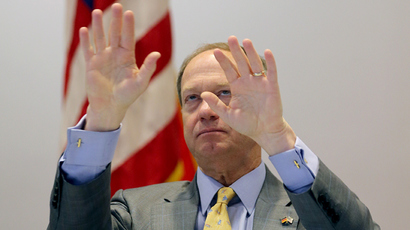Who spied? Dutch ministers grilled over misinforming MPs on NSA tapping

The Dutch Interior Minister has narrowly escaped a vote of censure after an unexpected revelation that his country’s spy service - not the US National Security Agency as he had said earlier - was behind grabbing data on 1.8 million phone calls.
Ronald Plasterk managed to maintain his position after being grilled in the Dutch parliament for nearly eleven hours till 3 AM Wednesday morning, according to the NLTimes news website. Plasterk, along with Defense Minister Jeanine Hennis, faced calls for their resignation over the revelation they made last week in a joint letter to MPs.
The letter admitted that Plasterk had wrongly told lawmakers last year that the US was collecting the so-called metadata. In fact, it was the Netherlands’ spy service that did so and later shared the information with the NSA, the document revealed.
On Monday, the Interior Minister also said that he had been told about the error in November, but had not passed that on to parliament, Dutch News wrote.
On Tuesday, both Dutch ministers were asked to give explanations on the matter during a debate called by opposition MPs. Blame was ascribed to Plasterk, who was “too silent when it became his turn to speak, and too talkative when it was his turn to be silent,” as MP Roelof Bisschop said it on twitter.
The MPs’ main concern was whether Plasterk had deliberately misinformed them the NSA was behind the tapping of Dutch phones.
The scandal initially erupted after German weekly Der Spiegel revealed the intercepts in a report based on documents leaked by American whistleblower Edward Snowden. In October, speaking on public TV, Labor-backed Plasterk denied that Dutch intelligence services were involved in eavesdropping and suggested that it was the NSA.
However, in the letter to parliament he and Hennis wrote that “closer investigation and analysis” of Spiegel's article “showed around 1.8 million records of metadata were captured by the National Sigint Organization (NSO) in the context of the fight against terrorism,” quotes AFP. The information, they said, was “legally collected and had to do with Dutch military operations abroad.”

“The information was shared with the United States in light of cooperation of the above-mentioned subject,” said Plasterk and Hennis (liberal People's Party for Freedom and Democracy).
Opposition parties were outraged by the disclosure.
Gerard Schouw, an MP for Dutch Democratic party, D66, said he wanted to know why it was necessary to collect information about 1.8 million phone calls.
“How many terrorists does the minister think are walking around the Netherlands?” he told news agency ANP, adding that it was “out of all proportion”.
Both ministers defended their silence saying that it was in the interest of the state and to protect “the modus operandi of the state intelligence service”.
The government members reviewed their stance after “Citizens against Plasterk” group took them to court.
The complaint specifically related to metadata collected by foreign intelligence services, used by the Netherlands, AFP reported.
Media revelations based on documents leaked by Snowden, the former NSA contractor, over American mass surveillance programs caused outrage among Europeans. It appears that the agency tapped hundreds of millions of phone lines across Europe as well as fiber cables used for internet communications. German Chancellor Angela Merkel was particularly angered following reports that the US allegedly tapped her mobile phone. She called it “unacceptable,” adding that such things are “just not done” between friends.
However, some European governments admitted that they had handed over data collected by their agencies to the NSA.













